Brief

Professional sports have attracted a significant amount of investment capital over the past five years. More than half of the deals have been acquisitions of teams, leagues, or media partnerships; the rest have focused on related aspects of the sports ecosystem, such as online betting, fitness hardware and software, and technology that supports digitally enhanced fan experiences (see Figure 1).
More than half of the deals made in sports over the past five years were investments in teams, leagues, or media rights
The pandemic-induced liquidity squeeze of 2020–2021 has accelerated this trend as teams and leagues are more open to limited partner investments. Predictably, asset prices are rising, and new ownership structures will necessitate a greater emphasis on disciplined financial management and greater operational effectiveness. In other words, the business of sports is about to become more business-like.
A changing field of play
New investment and ownership are just two among the many pressures that are rapidly changing sports (see Figure 2). The migration from broadcast to streaming, the rise of digital experiences (including Esports), technologies that allow for deeper fan engagement, and the rise of online betting in some markets are all changing the ways in which fans engage with their favorite teams and players as well as how that engagement is monetized.
New opportunities in sports will also put pressure on existing relationships
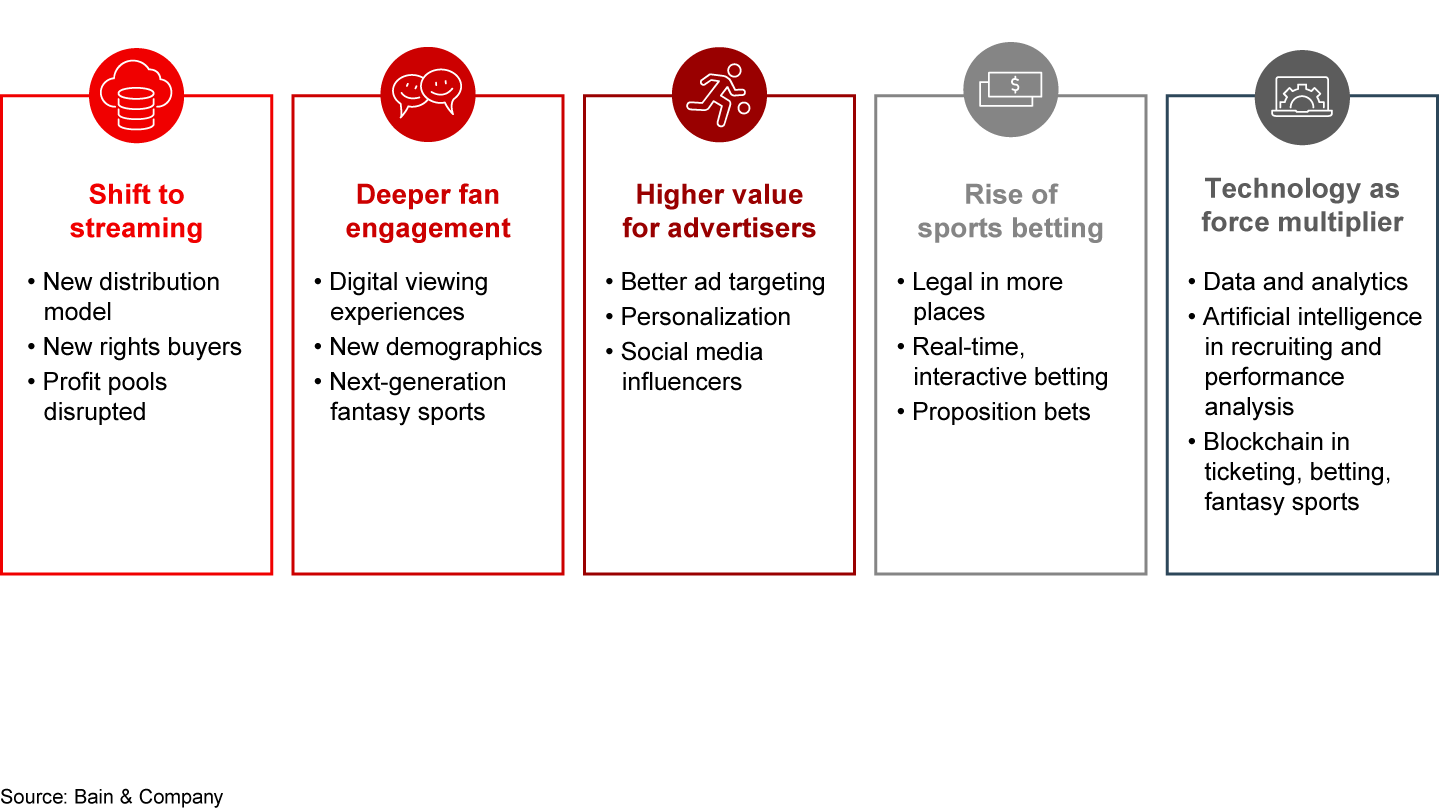
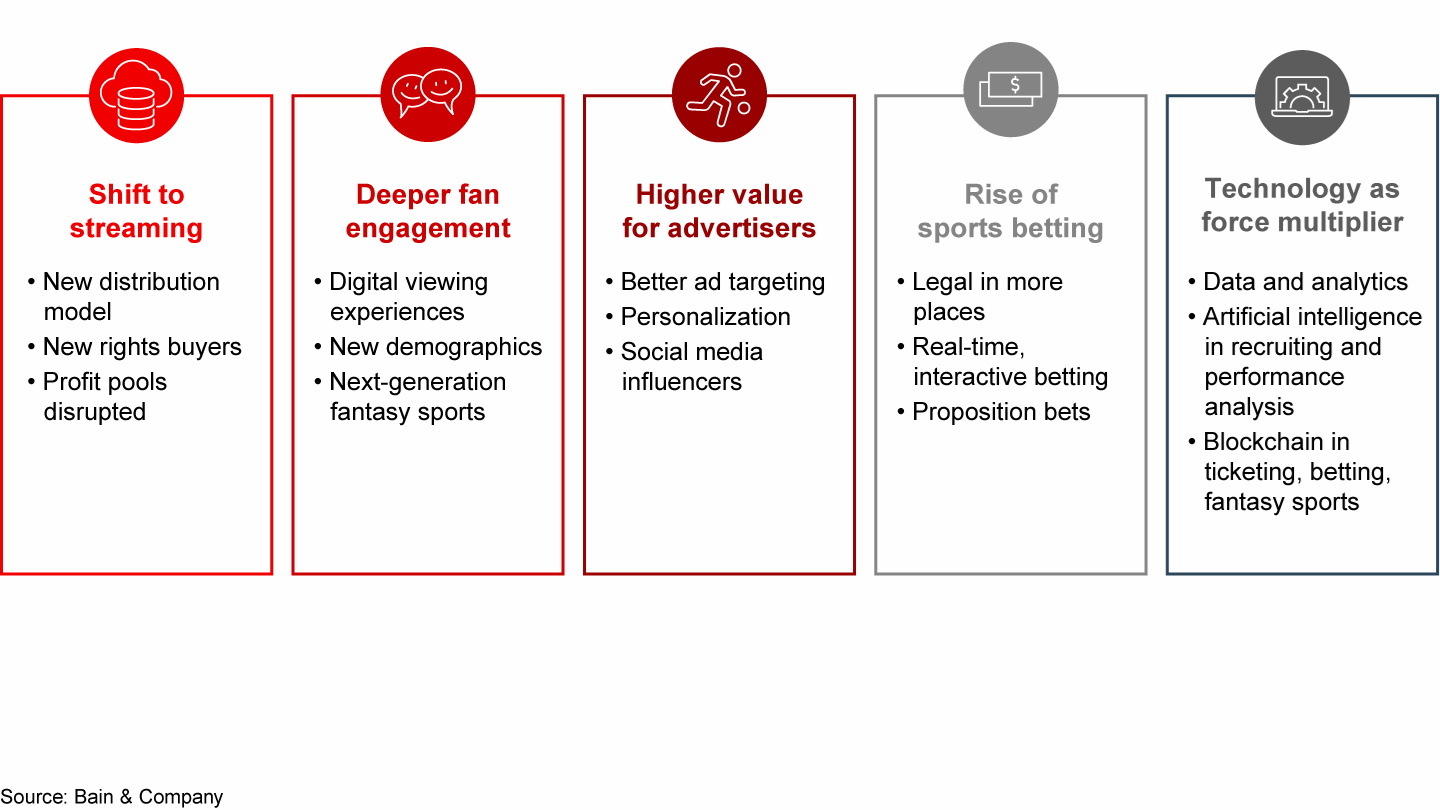
To thrive in this dynamic environment, investors and owners need to develop a clear understanding of the sources of value within the sports ecosystem, how the disruptive pressures are changing value flows, and what is required to gain a competitive business edge in this rapidly professionalizing industry.
A high-level view of the entire sports ecosystem shows where value originates and how it flows (see Figure 3). All revenue sources lead ultimately back to the fans and marketers, and from there, the money flows through media rights, sponsorships, ticket and merchandise sales, and betting.
Where money flows in professional sports
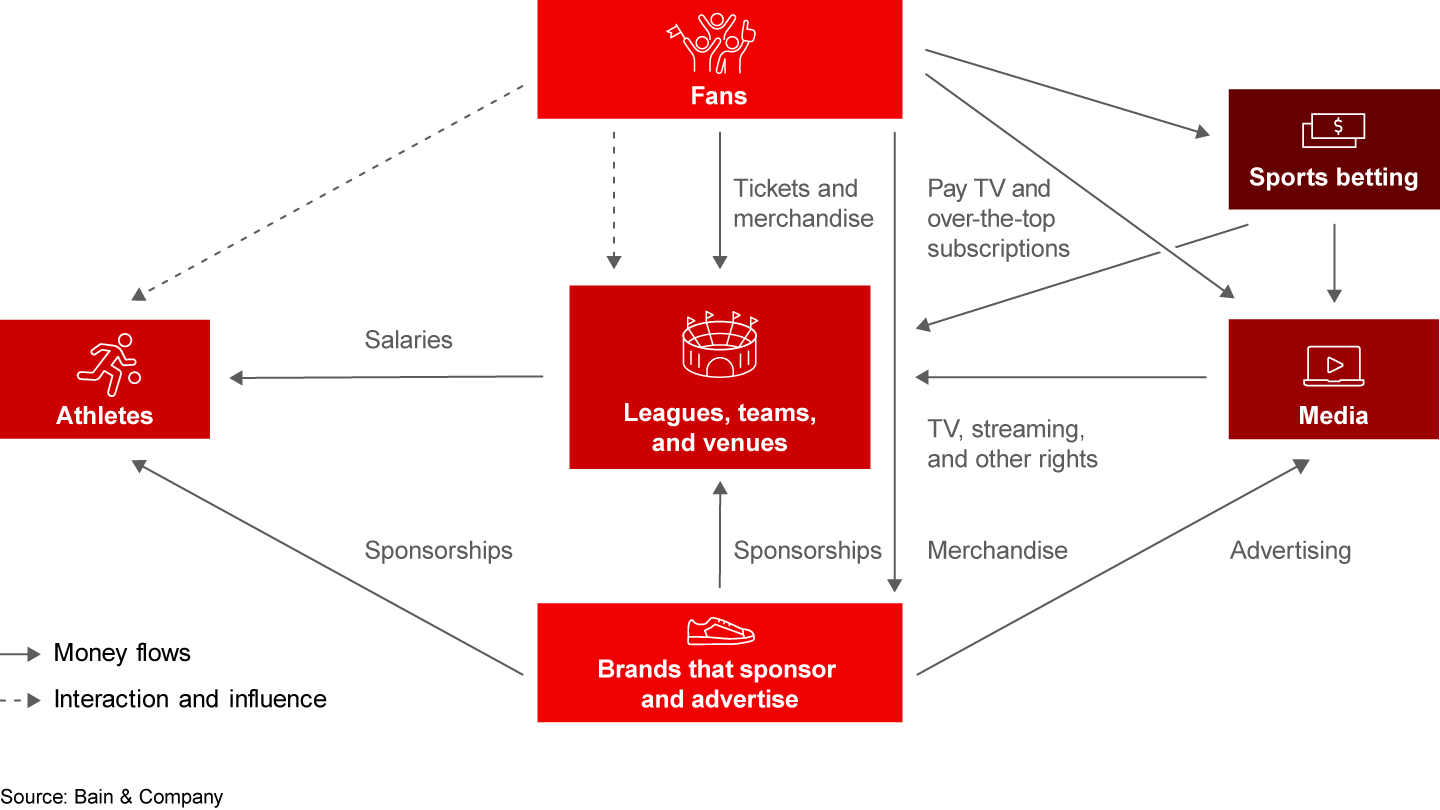
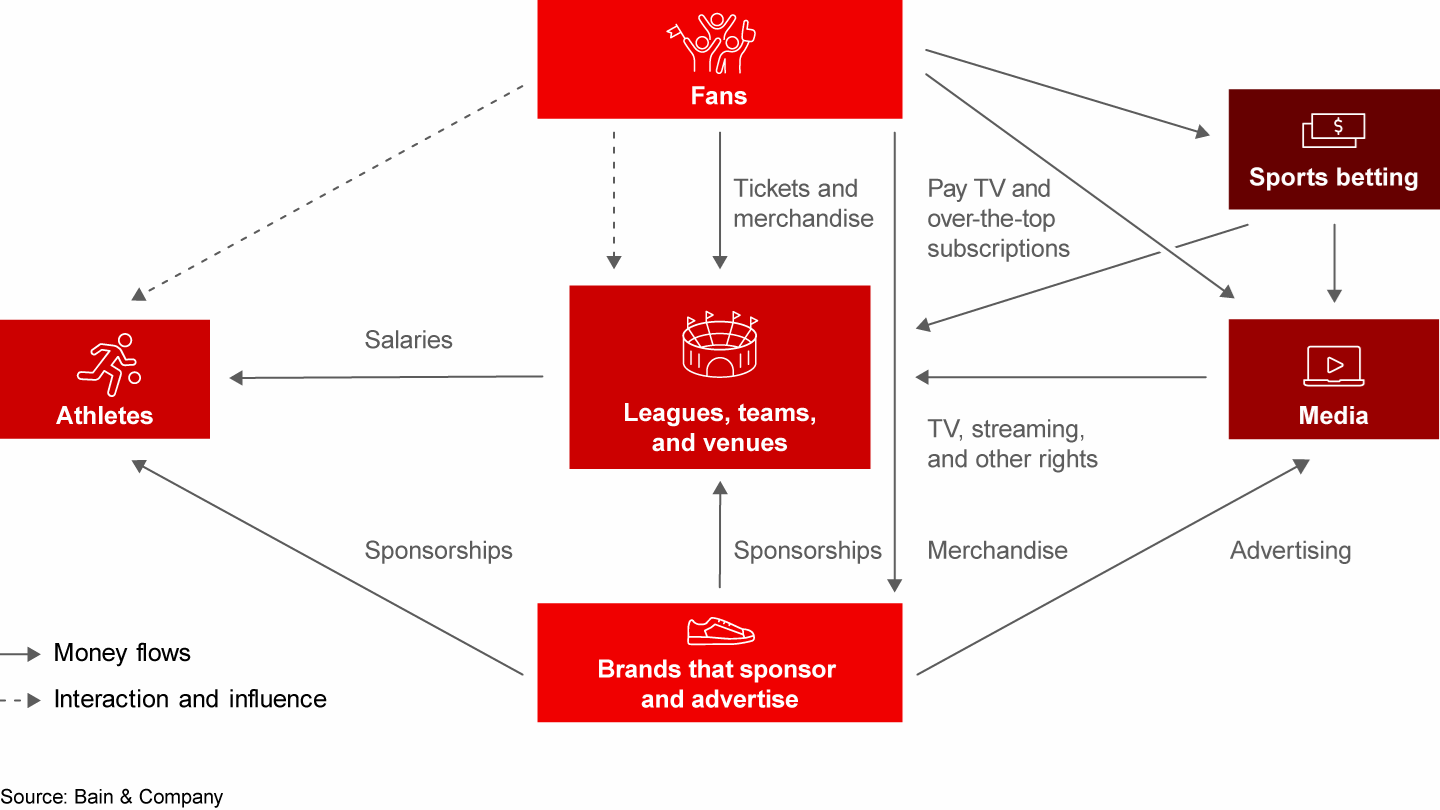
For most sports teams and leagues, media represents the biggest piece of the revenue pie (see Figure 4). But that may change. As sporting events follow the rest of broadcast entertainment and migrate to streaming platforms, leagues and teams will have to develop new models for delivering sports to fans—ones that tap into new viewing patterns without accelerating the decline of traditional pay TV bundles (see the Bain Brief “What If Sports Fans Cut the Cord?”). And as the share of revenue from traditional broadcast TV shrinks, teams and leagues are exploring other revenue streams.
Media makes up the largest part of revenue for most sports leagues and teams
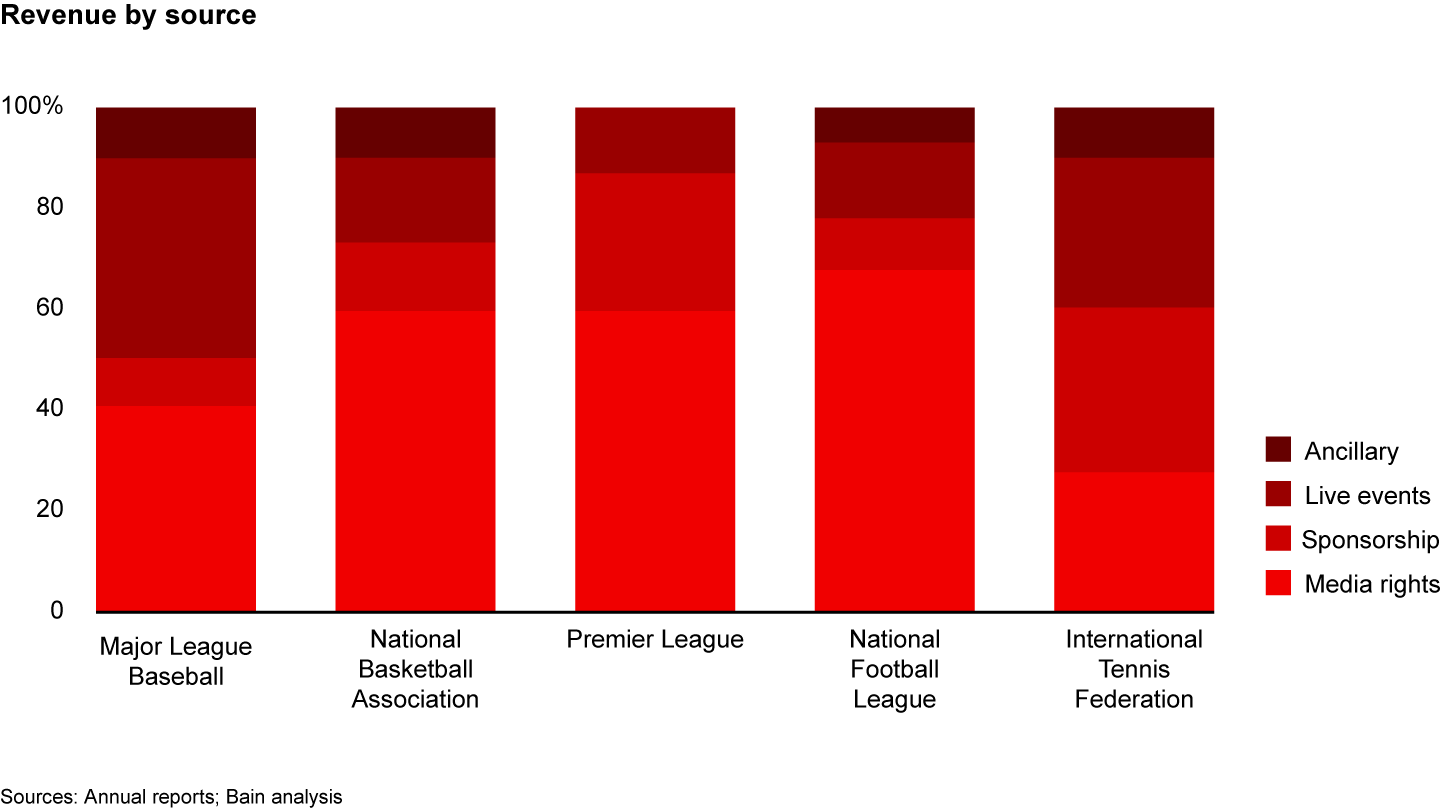
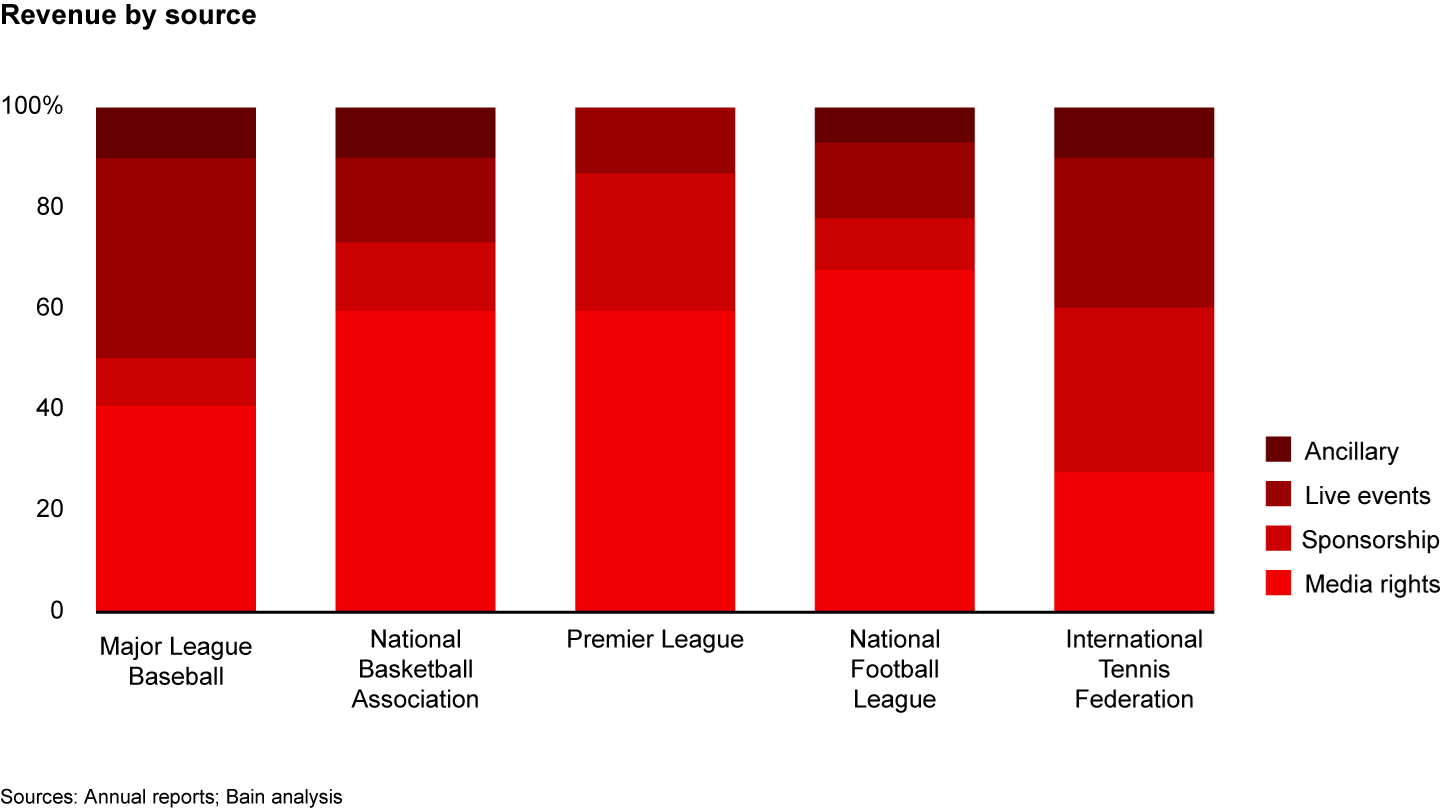
Playing in the majors
In spite of these new pressures, the basic principle remains that there are two ways to make money in sports:
- Increase the number and intensity of fans.
- Monetize this fan engagement through traditional and emerging revenue sources.
Digital innovations are at the forefront of several efforts to increase fan intensity. Some of these tap the energy around the fantasy sports model and link that to other revenue sources. Sinclair Broadcast Group’s acquisition of Fox Regional Sports Networks in 2019 gave the broadcaster access to more sports content to generate subscription and ad revenue. Sinclair’s more recent deal with Bally’s aims to extend the value of that content on digital platforms designed for gamification and online betting, particularly with younger fans.
One of the ways that investors can monetize fan engagement is through services provided to owners of sports assets. Bruin Sports Capital’s 2016 acquisition of sports media company Deltatre shows a pathway to invest in sports without buying a team, league, or venue. By investing in Deltatre’s capabilities to migrate fan engagement to digital environments, Bruin tapped into a revenue stream of repeatable, scalable products and services that are sold to asset owners.
More and bigger deals, along with the arrival of more professional capital aggressively seeking returns, will cause sports owners, managers, and executives to pay greater attention to business fundamentals while raising their operational game. Owners and investors will increasingly demand greater management discipline for sports operations as they try to attract and retain capital in search of returns.
In response, leagues and teams are deploying best practices from other industries to improve their operations and help them cultivate fandom, generate revenue, and rewire their operating models. Some of the most promising opportunities lie in better uses of data and analytics, and to spur that innovation, these companies are investing in better digital technologies and capabilities. For example, some media companies are using artificial intelligence and machine learning to predict consumer viewing behavior so that they can make better decisions about investments in content and digital experiences. This data science capability will be increasingly important to leagues and teams as they rely more on direct fan engagement to generate revenue.
As these trends play out, the next five years promise to be an exciting time for the sports industry, with profit pools shifting and new champions emerging. The business of sports may never be quite as exciting as the games these teams and players bring to fans. But the competitive rush to gain new market share and develop new opportunities might just mean that for many executives, it’s a close second.

What If Sports Fans Cut the Cord?
With profits from linear TV shrinking, sports programmers, distributors and leagues should explore new business models.